Have you ever felt overwhelmed with the amount of trash you generate at home every time you do a grocery run? Maybe it’s time for a fresh start by switching to more sustainable alternatives. I feel fortunate to live in a neighborhood with two eco-friendly stores nearby that make it easier to reduce household waste.
Along Maginhawa Street near the corner of Philcoa Avenue lies Maginhawa Eco Store, a low-impact lifestyle sari-sari store that offers refilling stations for condiments, cleaning liquids, shampoo, conditioner, and other household items here. Customers need to bring their bottles or containers when they visit. The shop also sells coffee beans, tea, trail mix, vegan products, eco-friendly products, books, arts and crafts by local artists.
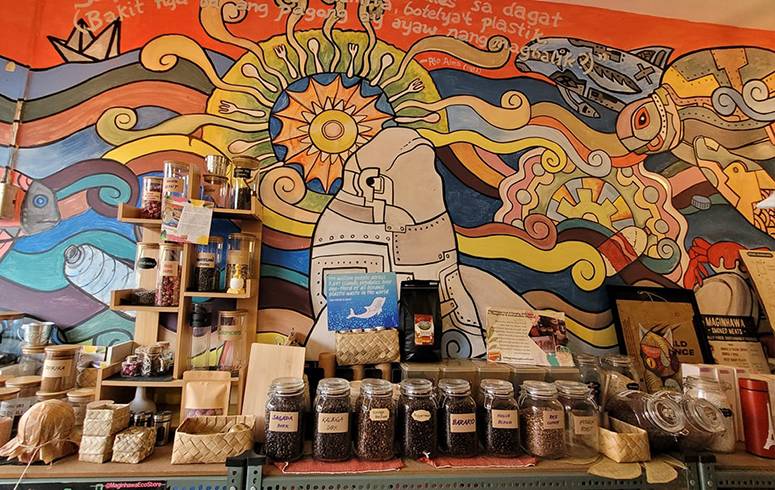
Meanwhile, a few meters away, in a small building that also houses a clinic, is Back to Basics (BtB) Eco-Store, an alternative grocery that provides convenient access to household, pantry and personal care products without the unnecessary packaging. They offer a wide range of cleaning supplies, from soap, shampoo, fabric softener, and cooking essentials that customers can refill from their own containers or use upcycled ones for an additional cost. BtB also sells coffee beans, nuts, vegan pasta, spices, nuts, and a wide range of eco-friendly products by community-based social enterprises.
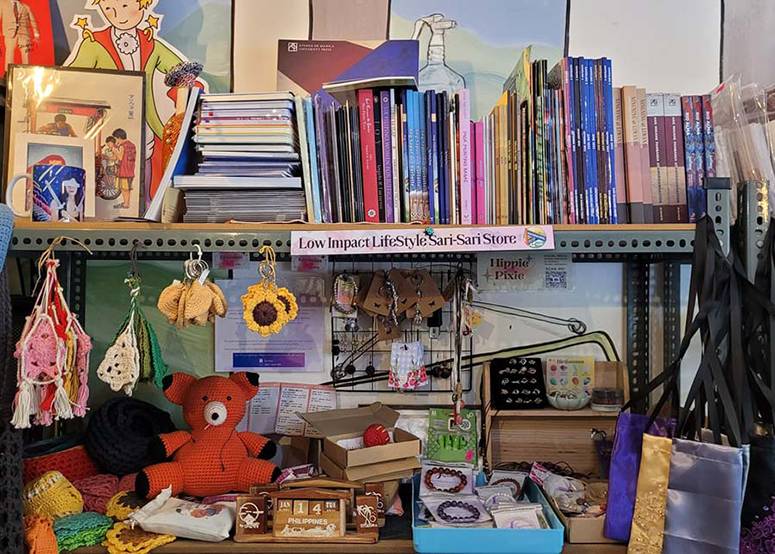
These two community shops, which were recently part of a study tour among environmental advocates for Zero Waste Month, serve as models for other communities for sustainability and eco-consciousness practices. If you’re looking to embrace a low-impact lifestyle starting at home, here are simple ways to start.
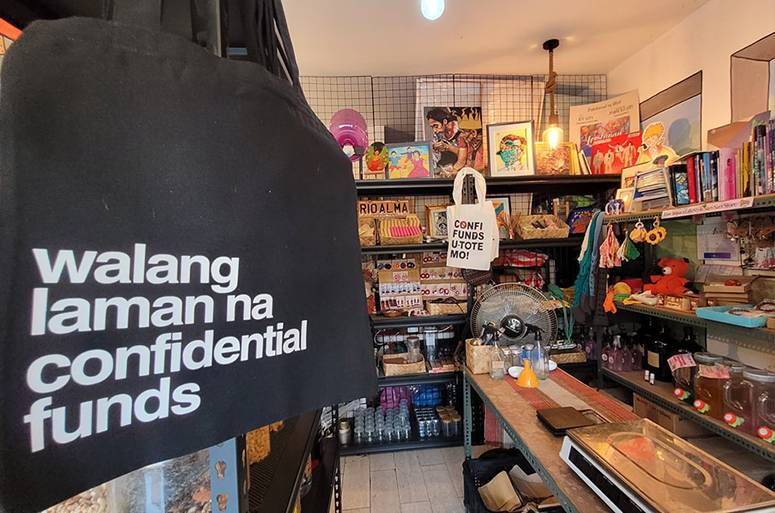
Avoid single-use plastic packaging
An international study on plastic pollution has shown that the Philippines is one of the world’s leading contributors to plastic waste discarded in the ocean. A large part of the problem lies in how big businesses package consumer goods, food, and beverages to prioritize convenience and low cost over sustainability. Over the years, our culture has shifted to a “tingi” mentality of buying small amounts in sachets to save on costs. Add to that the lack of proper waste disposal facilities and recycling facilities and the waste adds up.
While items packaged in single-use plastic containers are the default choice for many products because they’re cheap to produce and easy to distribute, these aren’t the only options available. Opt for products that make use of recyclable packaging over single-use ones.
We prefer buying fresh fruits and vegetables from neighborhood stalls, markets, or roving vendors with carts and stashing them in tote bags rather than buying bundled fruits that come in plastic and cling wrap from the grocery. When buying food items, you can opt for those in durable and long-lasting glass jars or stainless steel containers instead of plastic packaging.
Refill household essentials from refilling centers
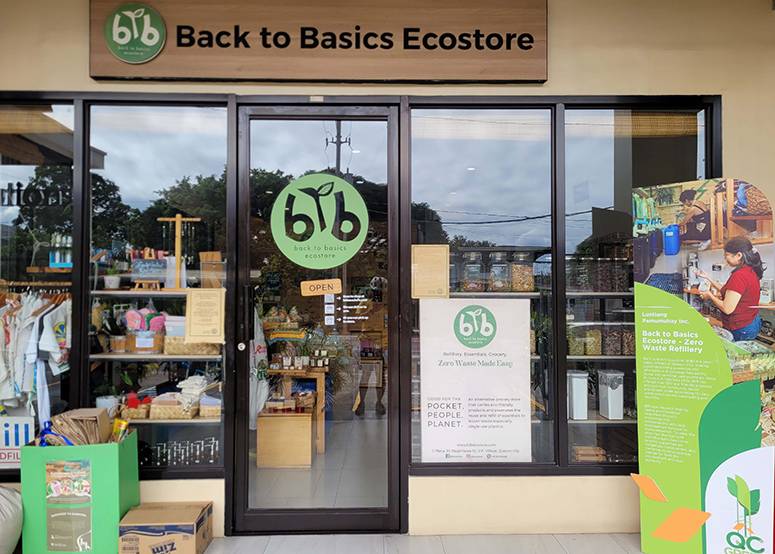
Shops like Maginhawa Eco-Store and Back to Basics can help reduce household waste from packaging for frequently used household items. While bigger families usually buy in bulk and refill containers at home, if you live alone or in a small household, you know this can lead to wastage. Refill stations encourage people to bring their own containers or use upcycled options available in-store and buy just as much as they need.
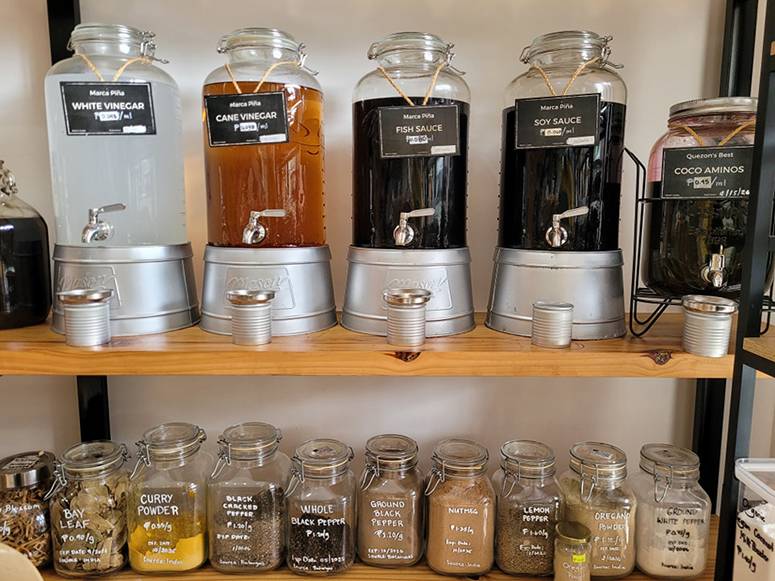
Commit to buying unpackaged or refilling certain goods from stores like these and organizing a pantry at home. You can keep items like rice, coffee beans, pasta, and cooking supplies in reusable jars or containers instead of buying them in individual packs or plastic bottles.
Bring your own bags and containers
It’s always useful to carry reusable bags and a tumbler of water wherever you go to stay hydrated and avoid buying bottled drinks. If you are handed a bag by default, you can always refuse it.
Opt to dine-in instead of getting takeout or delivery
If you live in an area with neighborhood cafes and restaurants, dining out can produce less waste at home than constantly taking food out or ordering delivery. Bringing your own food containers is a small step, especially if you expect leftovers. While it can seem a little embarrassing to bring out take-out containers in restaurants, most won’t mind while others even encourage it.
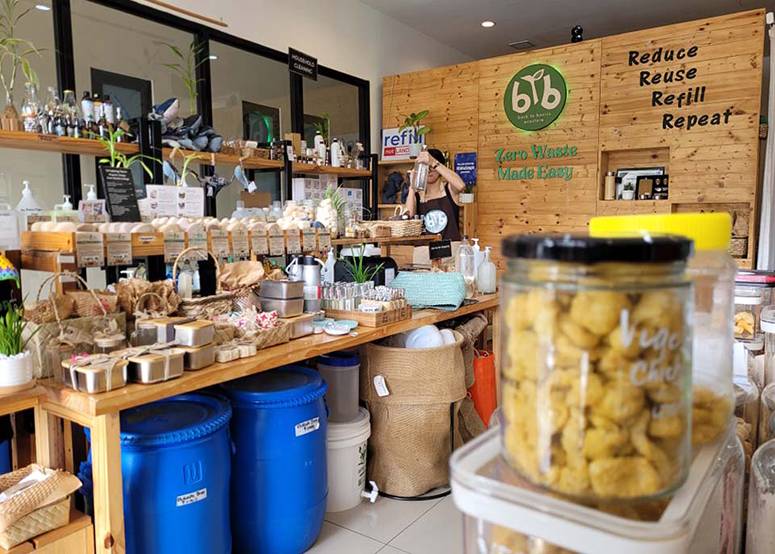
If you plan to takeout or pick up food, you can order from places that use sustainable packaging. It’s also easy to refuse extra items like straws, cutlery, ketchup packets, or condiments (if you have these at home) by specifying that in the delivery app.
Meanwhile, if you’re having coffee at a cafe, ask if drinks can be served in a reusable mug or glass and enjoy it inside instead of bringing it to-go in plastic cups.
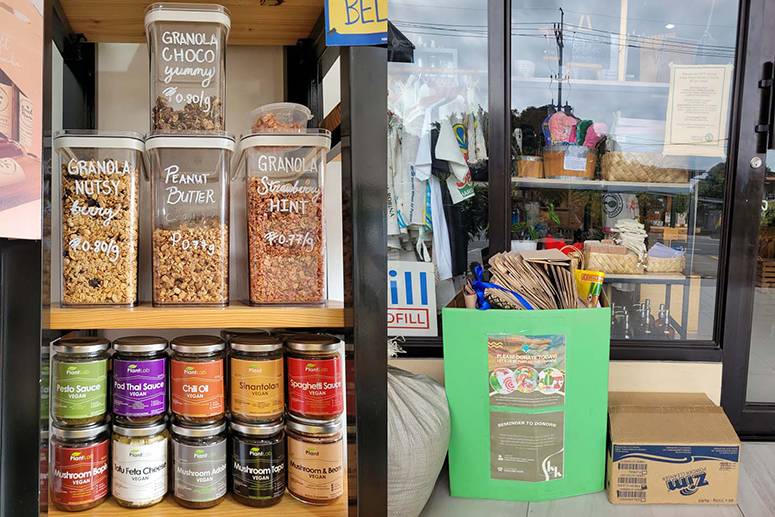
Swap frequently used items for more sustainable options
Another thing you can do is replace everyday items with eco-friendly alternatives. Instead of paper napkins or kitchen towels, try cloth ones that can be washed and reused to reduce paper waste.
Most kitchen sponges are synthetic and made from plastics, which aren’t biodegradable. Look for brands made from natural, biodegradable materials and free of harmful chemicals. You could also swap out your plastic toothbrush for a bamboo one. They’re biodegradable and just as effective at cleaning your teeth.
Compostable trash bags are a better choice for composting food waste and other organic materials versus traditional trash bags.
Organic soap, shampoo bars, and tooth tabs are alternatives to the commercial brands and products we’ve gotten used to.
Support local sustainability efforts
When you can, shop from small and sustainable businesses that have eco-friendly practices rather than big chain malls. Support your neighborhood bakeries, cafes, and markets over the big chain grocery shops, and take note of recycling programs in the neighborhood that can help you reduce, reuse, and recycle.
For instance, Maginhawa Eco-Store also runs a small free library, where customers can donate books they no longer need.
B2B runs various eco-workshops and occasionally accepts donations of items like used cooking oil, coffee grounds, and plastic shopping bags for community partners’ livelihood products.
While it may not seem like much, by making small, mindful changes in our daily routines, we can significantly generate less trash starting at home.
For more travel articles, visit the author’s blog at www.traveling-up.com.
#PropertyReportFeature
#FeaturedStory
